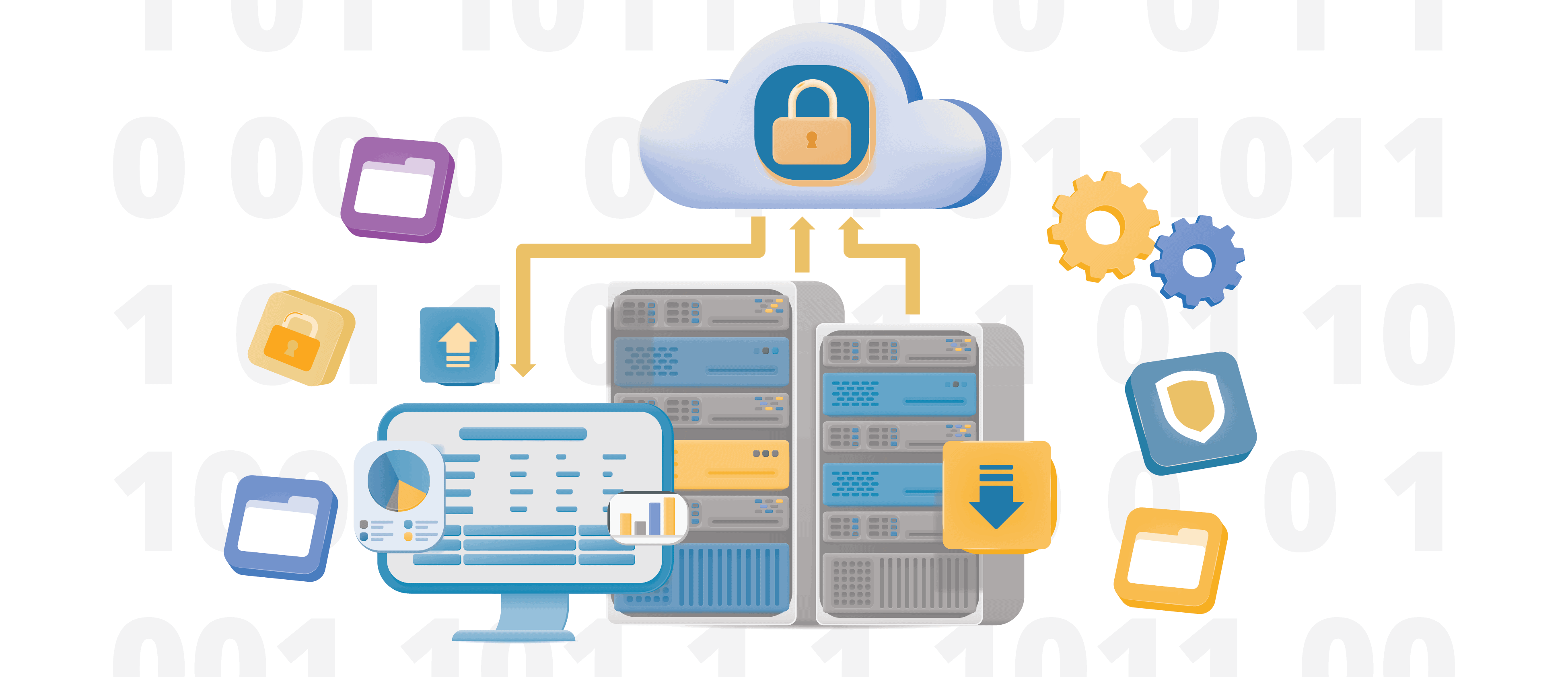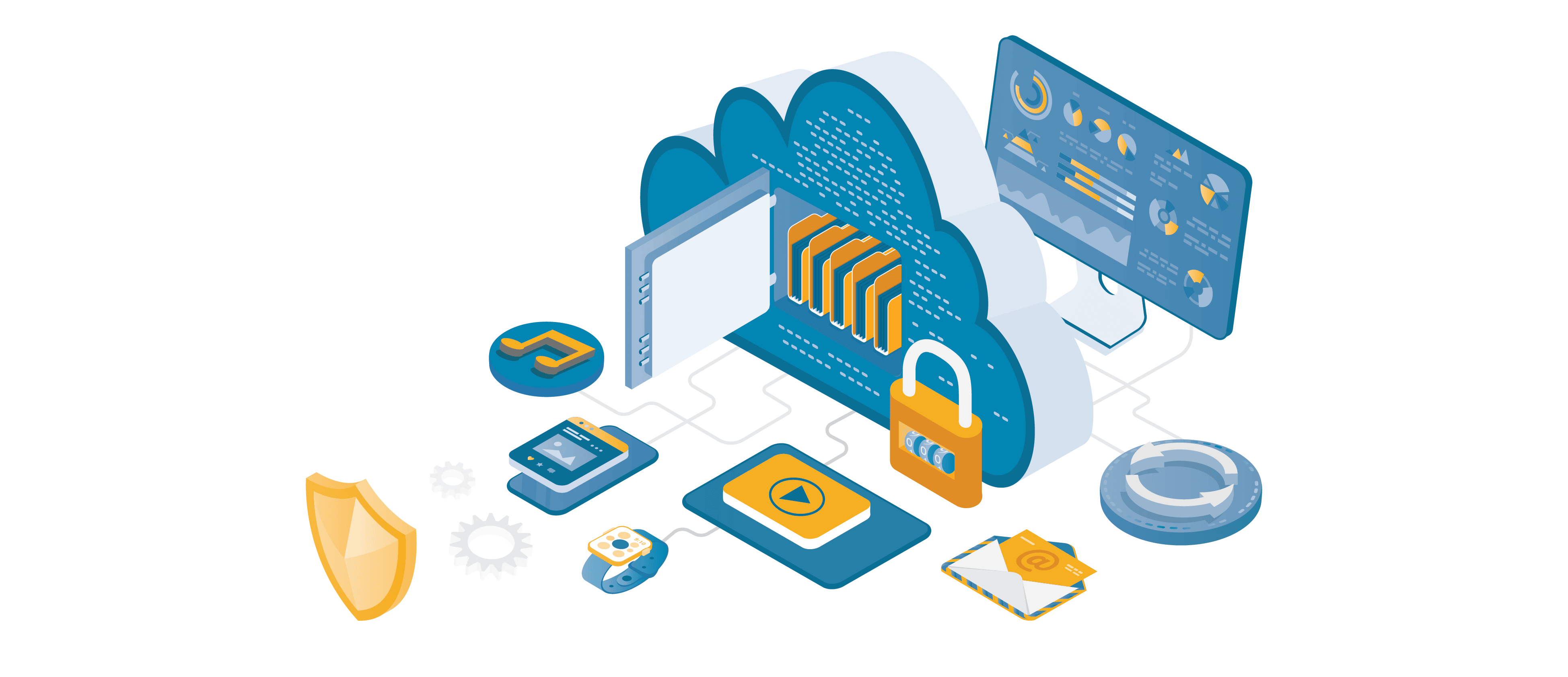In the fast-paced, interconnected world of modern business, the exchange of information is a critical component of success. However, with the convenience of digital file sharing comes the inherent risks associated with the potential compromise of sensitive data. Therefore, ensuring secure file sharing practices has become a top priority for businesses of all sizes.
Let's take a look at the significance of secure file sharing in modern business and the measures organizations can take to protect their valuable assets.
The Growing Need for Efficient Collaboration

Modern businesses thrive on collaboration, often involving teams spread across different locations, time zones, and even continents. This decentralization of the workforce has led to an increased reliance on digital communication and file sharing tools.
From project updates to financial reports, sensitive information is routinely exchanged within and between organizations. In this context, the need for secure file sharing mechanisms has never been more apparent.
Protecting Sensitive Data
One of the primary concerns associated with file sharing is the potential exposure of sensitive information. Customer data, financial reports, proprietary research, and intellectual property are just a few examples of the types of files that require safeguarding.
Unauthorized access to such information can result in severe consequences, including financial losses, damage to reputation, and legal ramifications.
Compliance and Regulatory Requirements
Various industries are subject to stringent regulations regarding data protection and privacy. Healthcare, finance, and legal sectors, for instance, must adhere to industry-specific compliance standards to ensure the confidentiality and integrity of sensitive data.
Secure file sharing not only helps businesses comply with these regulations but also protects them from the severe penalties that may arise from non-compliance.
Mitigating the Risks of Cybersecurity Threats
The digital landscape is rife with cybersecurity threats, ranging from phishing attacks to ransomware. Inadvertently sharing files with malicious entities can lead to data breaches, financial losses, and disruptions to business operations. Secure file sharing solutions implement encryption, access controls, and authentication mechanisms to mitigate these risks and ensure that files are only accessible to authorized individuals.
Enhancing Productivity and Efficiency
In addition to protecting sensitive information, secure file sharing contributes to increased productivity and efficiency in modern businesses. Employees can quickly and seamlessly share files without compromising security. This enables smoother collaboration, accelerates decision-making processes, and fosters a more agile and responsive business environment.
Choosing the Right Secure File Sharing Solution

Selecting the appropriate file sharing solution is paramount to ensuring the security of shared data. Businesses should opt for platforms that offer end-to-end encryption, access controls, audit trails, and user authentication features. Additionally, solutions should be regularly updated to address emerging threats and vulnerabilities.
Educating Employees on Best Practices
While implementing secure file sharing solutions is crucial, educating employees on cybersecurity best practices is equally important. Employees should be aware of the risks associated with file sharing, recognize phishing attempts, and understand the importance of using secure channels for communication. Regular training sessions and awareness programs can significantly contribute to building a culture of cybersecurity within the organization.
Consumer-grade File Sharing Services vs. VDRs
Consumer-grade file sharing platforms, such as Box, Dropbox, and Google Drive, and virtual data rooms (VDRs) serve different purposes and are designed with distinct security features to meet the needs of different users and organizations. Here's a comparison between the two:
Consumer-grade File Sharing Platforms
User-Friendliness
- Pros: Consumer-grade platforms are often designed for ease of use and are user-friendly. They prioritize simplicity and accessibility, making them suitable for personal and casual use.
- Cons: The focus on user-friendliness may result in a trade-off with security features, as these platforms may prioritize convenience over robust protection.
Collaboration
- Pros: These platforms are often geared towards collaboration, allowing multiple users to access, edit, and share files in real-time.
- Cons: The collaboration features may pose security risks, especially if not adequately configured. Permissions and access controls may be more limited compared to VDRs.
Security
- Pros: While some consumer-grade platforms implement security measures such as encryption, they may not offer the same level of security as VDRs.
- Cons: The security protocols may not be as comprehensive, and these platforms might not be suitable for handling sensitive or confidential information.
Cost
- Pros: Consumer-grade platforms are often more cost-effective or even free for basic usage.
- Cons: Advanced features and enhanced security options may come at an additional cost or may not be available.
Virtual Data Rooms (VDRs)

Security
- Pros: VDRs are designed with a strong focus on security. They typically include advanced encryption, multi-factor authentication, and granular access controls to ensure data protection.
- Cons: The heightened security features may come with a steeper learning curve and potentially slower user experience due to the additional security layers.
Compliance
- Pros: VDRs often comply with industry-specific regulations, making them suitable for handling sensitive data in legal, financial, and healthcare sectors.
- Cons: Consumer-grade platforms may not adhere to the same level of compliance standards.
Customization
- Pros: VDRs usually offer more customization options, allowing organizations to tailor the platform to their specific needs.
- Cons: Consumer-grade platforms may have limited customization features.
Audit Trail
- Pros: VDRs provide detailed audit trails, tracking user activities and document access. This is crucial for maintaining accountability and transparency.
- Cons: Consumer-grade platforms may have limited or no audit trail capabilities.
Cost
- Pros: VDRs may be more expensive, but they offer a higher level of security and customization, making them suitable for businesses with specific security and compliance requirements.
In summary, while consumer-grade file sharing platforms are convenient for general use, virtual data rooms are better suited for situations where enhanced security, compliance, and control over data are paramount, such as in mergers and acquisitions, legal transactions, or highly regulated industries. The choice between them depends on the specific needs and priorities of the organization or individual users.
In today's world, secure file sharing is not just a technological requirement but a strategic imperative for businesses. The potential risks associated with the compromise of sensitive data are too significant to ignore.
By prioritizing secure file sharing practices, businesses can protect their assets, comply with regulatory requirements, and foster a collaborative environment that promotes productivity and efficiency. In an era where information is a powerful currency, the importance of secure file sharing cannot be overstated.
ShareVault is the innovation leader in providing virtual data rooms and secure document-sharing solutions that allow businesses to control and track the sharing of confidential information with external parties during due diligence and other critical business processes.
